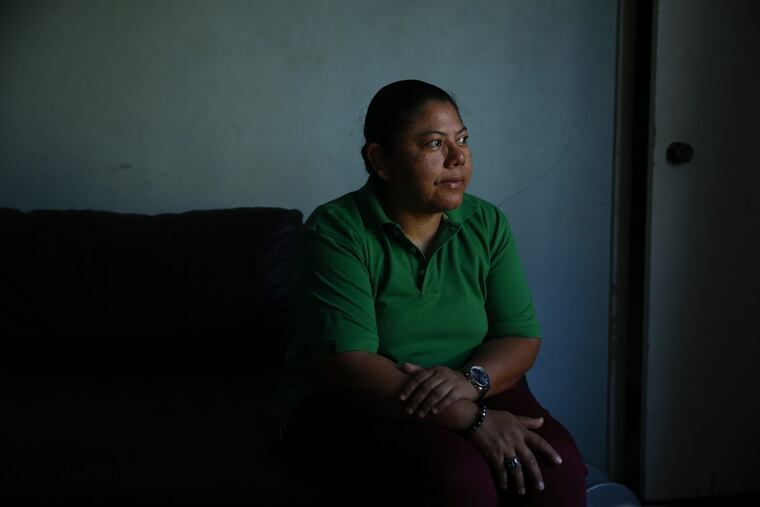Temporary protections for some immigrants could disappear | Commentary
Temporary Protected Status (TPS) will expire next week for people who fled war-torn and environmental distressed countries such as Honduras, Nicaragua and in the coming weeks, Haiti and El Salvador.

A seismic shift is on the verge of taking place in this country. Last week, the U.S. Chamber of Commerce waved the red-flag warning of the potential danger. The impact will devastate our economy, communities and thousands of families. If the Department of Homeland Security and Congress do not act, Temporary Protected Status will expire next week for people who fled war-torn and environmental distressed countries such as Honduras, Nicaragua and, in the coming weeks, Haiti and El Salvador.
We need our government to stop covering the wound and create a long-term solution to keep these hardworking men and women in the country. If expiration happens, it means more than 300,000 relatives, neighbors, and co-workers who've been in this country — living, working, and paying taxes for nearly two decades — will be forced back to countries many have never known.
32BJ SEIU is one of the largest labor unions representing immigrant workers in the country. This issue is very close to us because some of those impacted by this decision are our members.
The United States has embraced these people for decades, giving them refuge. TPS recipients have assimilated to the American way and have worked hard to be productive members of their communities. Now, America wants to give them the boot. This certainly does not speak to the American values that we hold dear. This is not the "this land is my land, this land is your land" we sing about it.
Not only does this go against all that this country claims, the economic impact of losing more than 300,000 people would be devastating across the United States. Right here in Pennsylvania, TPS beneficiaries have helped to revitalize towns such as Norristown, Allentown, Hazelton, and Coatesville, to name a few. The U.S. Chamber of Commerce urged DHS for an extension, so employment wouldn't take a financial hit.
Workers here on TPS are essential. According to the Immigrant Legal Resource Center, the United States would see a $45.2 billion reduction of the gross domestic product within 10 years if they are deported. Social services such as Social Security and Medicare would take a hit, too, losing nearly $47 billion within a decade. And, the cost to deport all these people would be $3.1 billion.
These men and women have helped to strengthen our local communities. TPS recipients are law-abiding citizens who contribute billions to the economy. They work in our office buildings, restaurants, grocery stores and hospitals. More than 100,000 TPS holders pay mortgages. If they are forced to leave the United States, who will pay their mortgages? Their homes will be forced into foreclosures, leaving local communities with thousands of abandoned homes.
But what's worst is the impact on families. Many who fled to this country years ago now have children who are American citizens. For the 275,000 American-born children of TPS beneficiaries, the United States is the only home they know. They haven't spent holidays visiting loved ones in war-torn El Salvador or destitute Haiti. They don't have any connection to the countries where their parents were born. Thousands of American children could be forced to grow up without their parents or leave their lives behind and move to countries where their lives would be in danger.
America has served as a beacon of hope, where many of these men and women could find stable work and raise families. If they have to return to their homelands, they will see that much hasn't changed. El Salvador, the murder capital of the world, is considered one of the deadliest countries for women, and gangs rule the streets with iron fists. The situation is no better in Haiti, where it remains the poorest country in the Western Hemisphere with thousands living in unsanitary conditions in tents.
We need to work on a long-term solution for these hardworking men and women to stay in the country. We can no longer expect a Band-Aid to repair a torn ligament. Terminating this program has implications for all of us. Congress must keep our country vibrant and strong and provide a permanent solution for TPS.
Daisy Cruz is Mid-Atlantic district leader for 32BJ SEIU, the largest property services union in the nation.